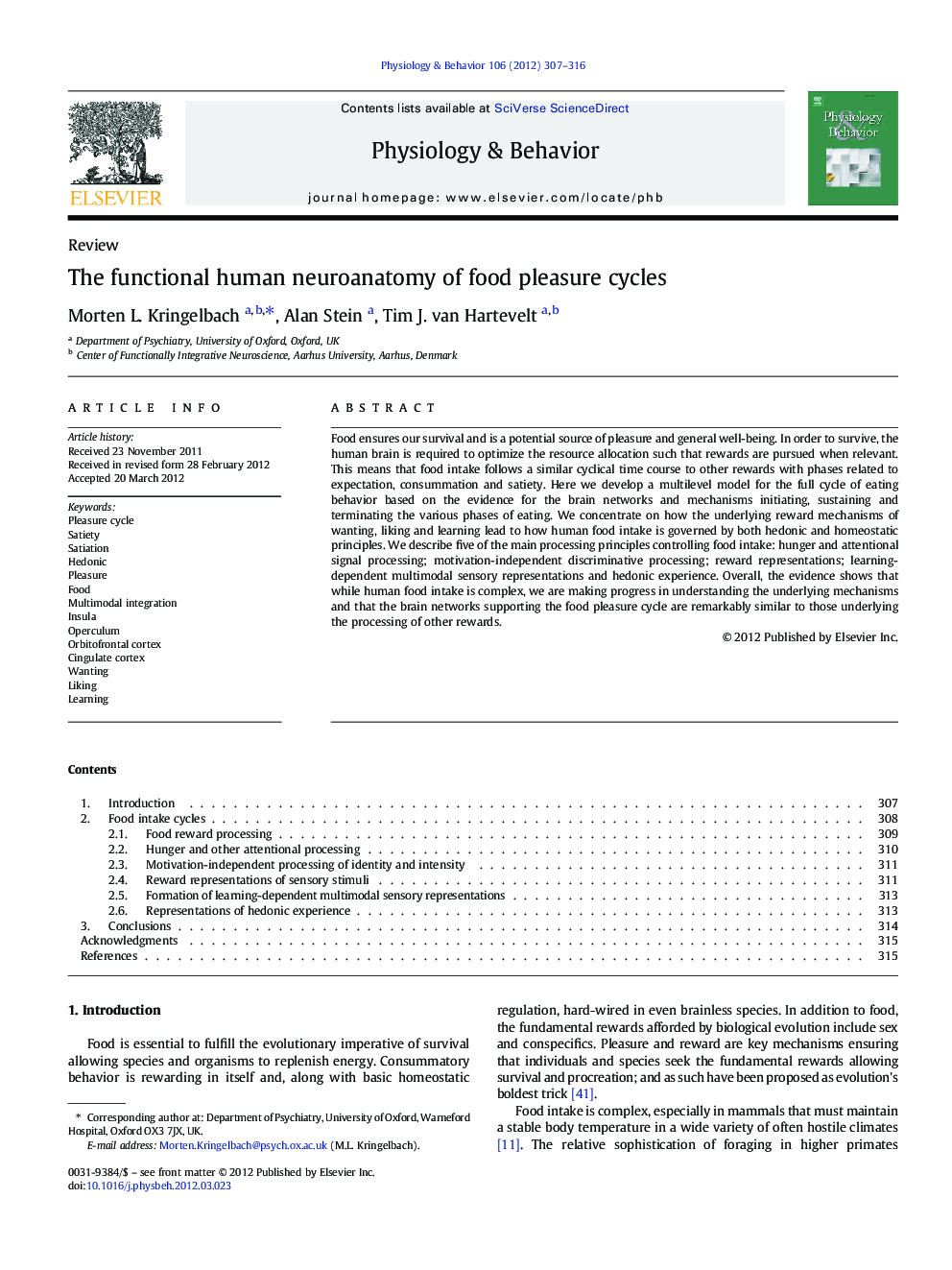| Article ID | Journal | Published Year | Pages | File Type |
|---|---|---|---|---|
| 5925024 | Physiology & Behavior | 2012 | 10 Pages |
Food ensures our survival and is a potential source of pleasure and general well-being. In order to survive, the human brain is required to optimize the resource allocation such that rewards are pursued when relevant. This means that food intake follows a similar cyclical time course to other rewards with phases related to expectation, consummation and satiety. Here we develop a multilevel model for the full cycle of eating behavior based on the evidence for the brain networks and mechanisms initiating, sustaining and terminating the various phases of eating. We concentrate on how the underlying reward mechanisms of wanting, liking and learning lead to how human food intake is governed by both hedonic and homeostatic principles. We describe five of the main processing principles controlling food intake: hunger and attentional signal processing; motivation-independent discriminative processing; reward representations; learning-dependent multimodal sensory representations and hedonic experience. Overall, the evidence shows that while human food intake is complex, we are making progress in understanding the underlying mechanisms and that the brain networks supporting the food pleasure cycle are remarkably similar to those underlying the processing of other rewards.
⺠Food ensures survival as a source of pleasure and well-being. ⺠In order to survive, brain must optimize resource allocation for reward pursuit. ⺠Our focus is on how wanting, liking and learning relate to human food intake. ⺠We propose multilevel model for the full cycle of eating behaviour. ⺠Food intake follows a similar cyclical time course to other rewards. ⺠The time course includes phases related to expectation, consummation and satiety. ⺠We describe mechanisms initiating, sustaining and terminating eating. ⺠Five of main processing principles controlling food intake are presented. ⺠Progress is being made in understanding brain networks supporting the food pleasure cycle.
